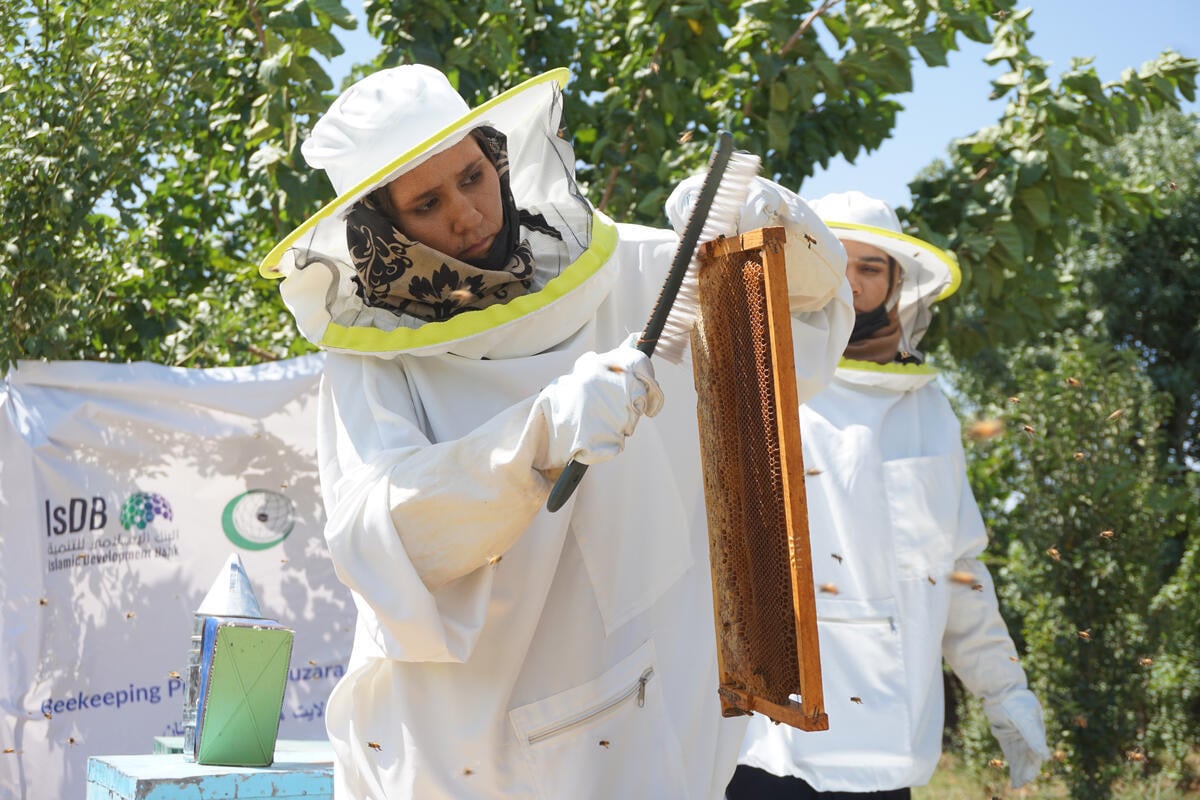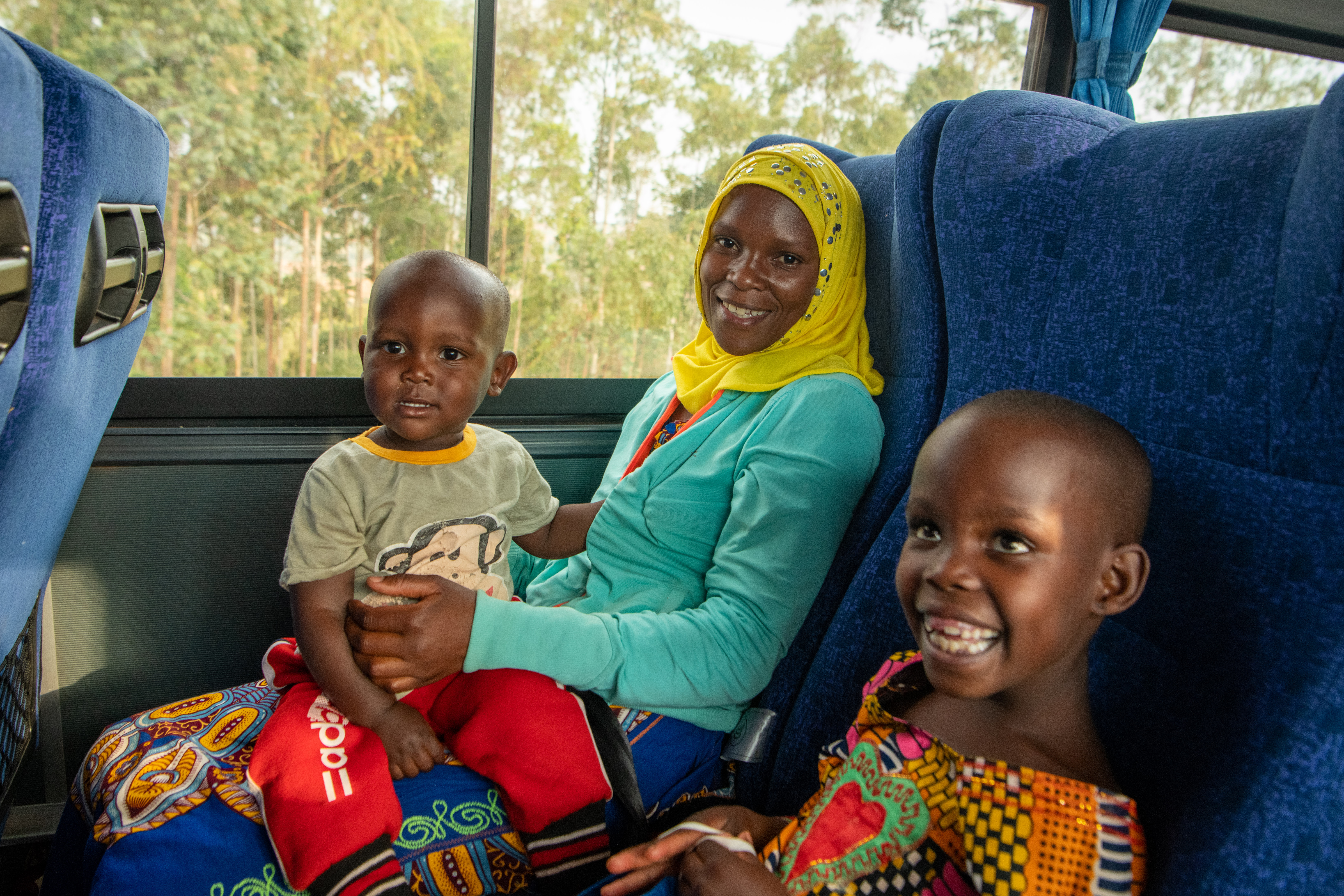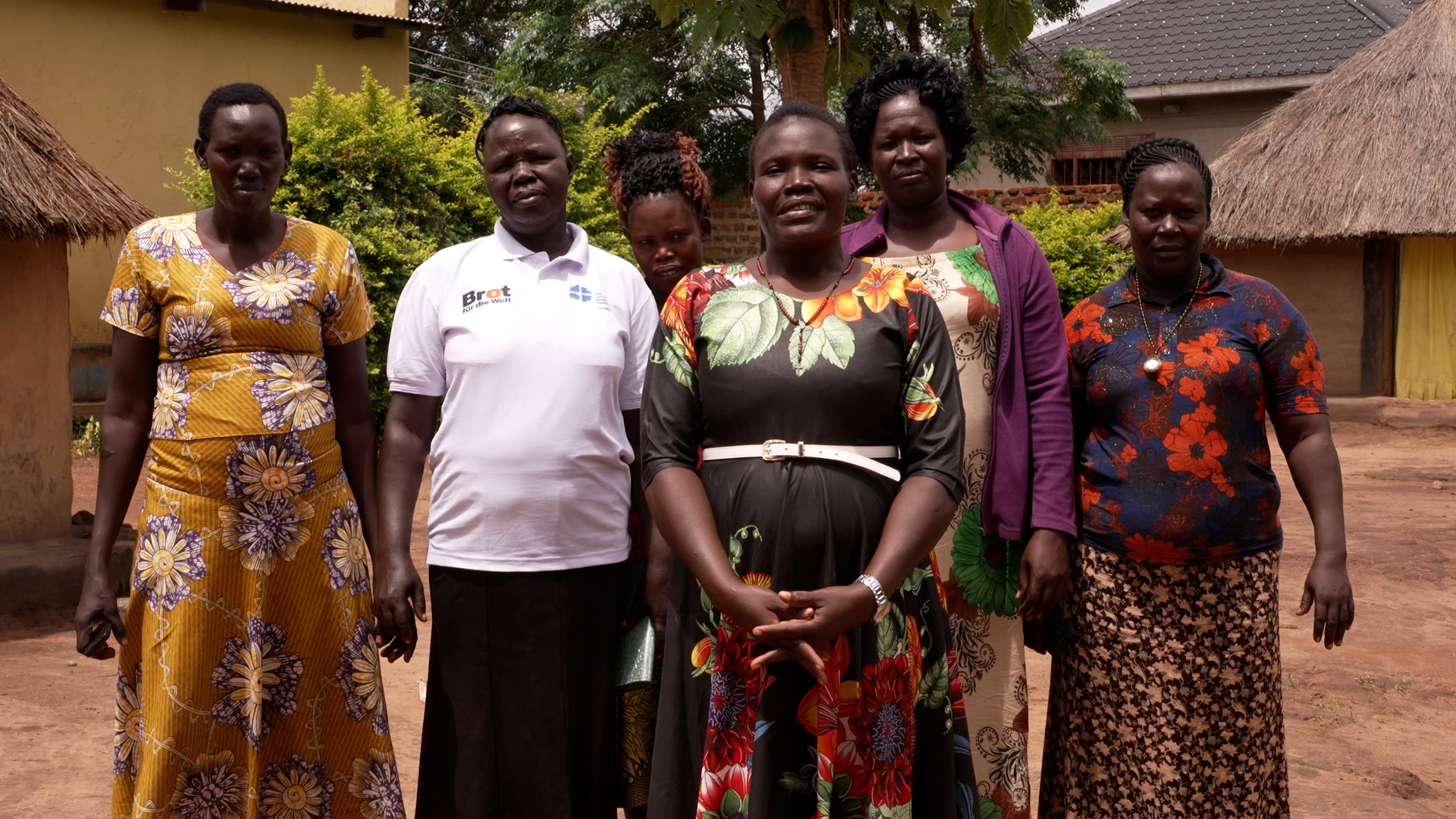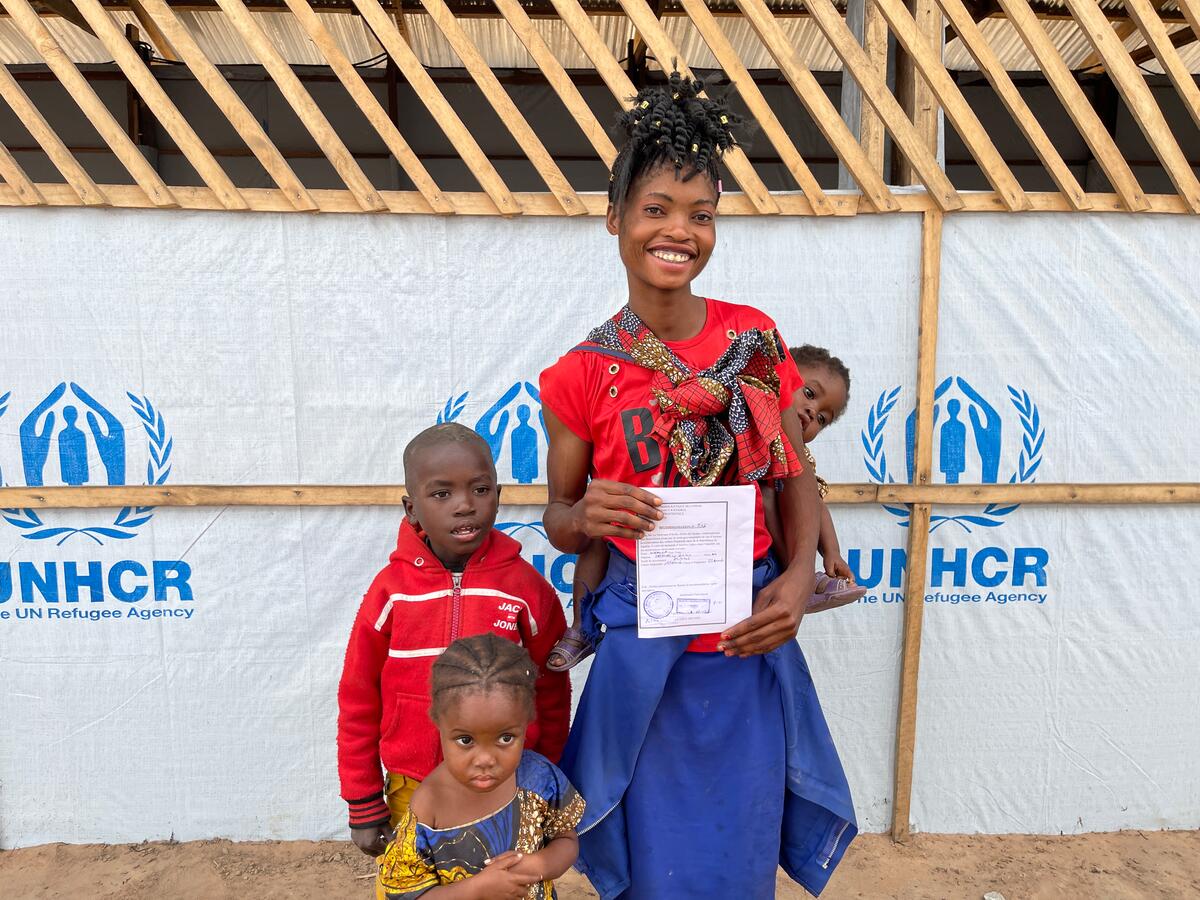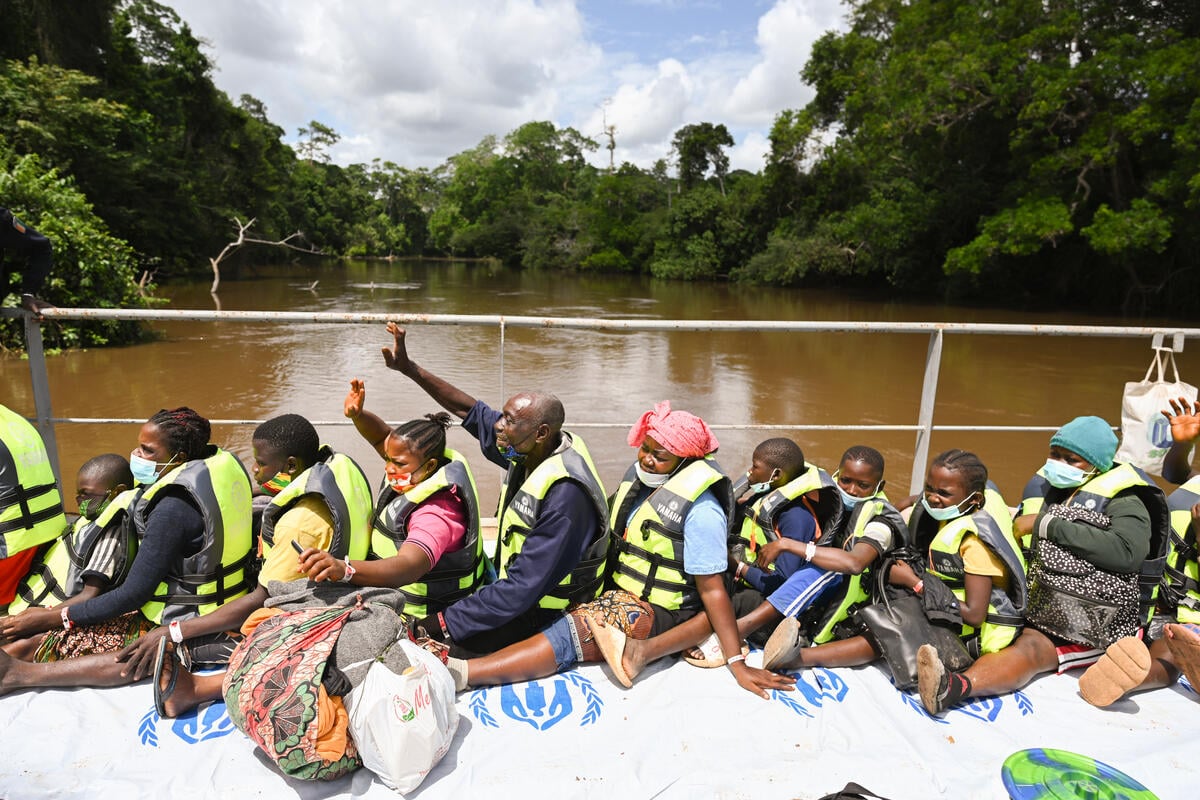Last Bosnian refugees in Hungary return to psychiatric care centre after two decades in exile
Last Bosnian refugees in Hungary return to psychiatric care centre after two decades in exile

MODRICA, Bosnia and Herzegovina, October 23 (UNHCR) - It's been a long and involuntary round trip, but after almost two decades a group of Bosnian refugees with mental illnesses have finally returned to the security of the specialist medical facility they were forced to flee in 1992.
The UN refugee agency took the 19 highly vulnerable refugees, aged between 45 and 75, back to the Jakes Institute in Modrica, northern Bosnia and Herzegovina, late last week from Debrecen in north-east Hungary, where they had been living since 1996 in the government-funded mental ward of a refugee reception centre.
The faces of the refugees, eight women and 11 men, lit up when their bus approached the psychiatric care facility on a moonless Bosnian night. Their excitement was palpable. "Look, we're back home," someone shouted.
Senad, in his late fifties, spent half of his adult life in Hungary. But he said he never gave up hope that he would return one day. He and his confused fellow patients, the last Bosnian refugees in Hungary, cried with happiness when they heard last week that they would be going back to Jakes the next day.
They were among a group of about 100 patients with mental illnesses evacuated from Jakes at the onset of the 1991-1995 war in the former Yugoslavia, The years of conflict destroyed Bosnia and Herzegovina's health care system, which was based mainly in asylum-type institutions and smaller psychiatric wards in general hospitals. The centre for psychiatric care at Jakes, which specialized in patients with chronic disorders, was damaged.
The reconstruction and reorganization of mental health services began almost immediately and has continued since. UNHCR repatriated a group of 40 patients in 2002 and others were helped back by family. But, because of their extreme vulnerability and questions about their citizenship, it has taken a lot longer to find a durable solution for these final 19.
"Making a determination that return would be voluntary and conducted in safety and dignity is exceedingly complex in the case of people with mental disabilities who may be unable to take the decision for themselves," said Naveed Hussain, UNHCR's representative in Bosnia and Herzegovina.
Moreover, the facilities at Jakes had been badly damaged during the conflict and it took a long time to renovate the centre. The Bosnian government's Ministry for Human Rights and Refugees allocated about 150,000 euros to renovate and equip Jakes.
UNHCR staff made multiple visits in recent years to Jakes to help them make a decision on whether or not the facility was ready to accept the refugees. The refugee agency also engaged a Bosnian psychiatrist to travel to Hungary and assess each patient. The psychiatrist concluded that it would be in their general interest to return to Bosnia.
Biljana Zelinčević, a neuropsychiatry expert at the Jakes Institute, accompanied the new patients back to Modrica. "For the next two months they will stay at the institute," she said, explaining that "this period will allow us to evaluate their condition and to decide on the required therapy."
The doctor added that "at the same time, we will trace their relatives." Those who can cope will be able to live outside the institute. But many will live out their days in the institute.
Resolving this case required cooperation between UNHCR and the authorities in Hungary, Bosnia and Herzegovina, and the Republika Srpska, where Jakes is located. The Bosnian and Republika Srpska governments have pledged to help pay medical costs and insurance for the group.
"The successful return of this group, after so many years, shows that with the cooperation of different organizations and the different levels of authority in Bosnia and Herzegovina, durable solutions for vulnerable displaced people, no matter how complex their case may be, can be found," UNHCR's Hussain said. The agency will follow their progress in Bosnia and Herzegovina.
By Zoltan Toth in Modrica and Darragh Farrell in Sarajevo, Bosnia and Herzegovina.

